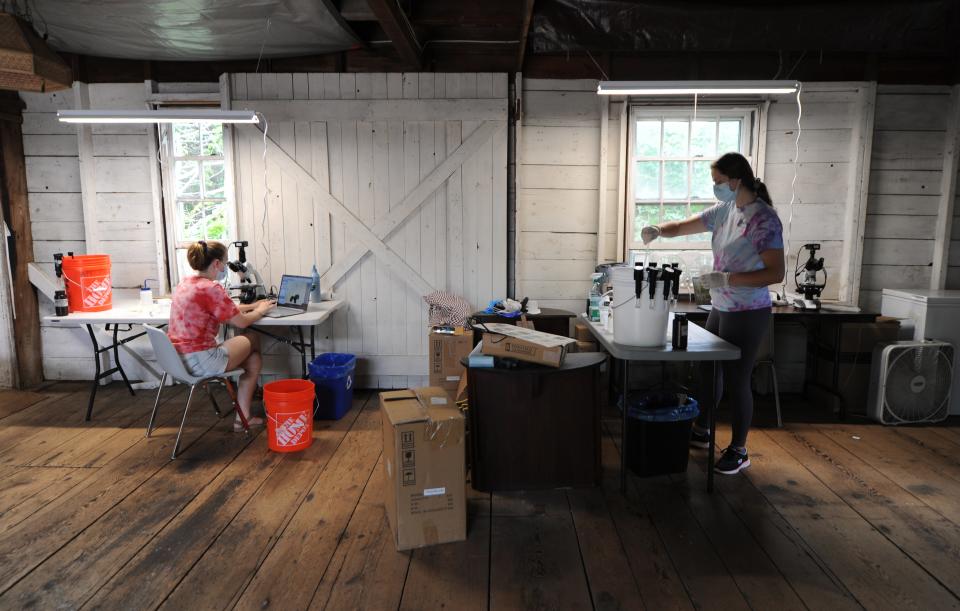Cape Cod cyanobacteria report: 3 freshwater ponds on Cape Cod under use restrictions
The Association to Preserve Cape Cod, along with volunteers, pond associations, towns and the state, is monitoring more than 100 freshwater ponds for concentrations of cyanobacteria (blue-green algae) and toxins produced by the bacteria.
These toxins can affect the liver and nerves, and a dog died from licking green algae along the shore in Nickerson State Park.
Cape Cod Times Cyanobacteria Report: Follow along here for the rest of 2022
When levels rise, association staff members alert towns. The towns then may post a prohibition on swimming and other activities in the pond until the algal population drops.
The blooms usually occur in the late summer, fueled by warm water or high levels of nutrients from fertilizers, runoff or wastewater seeping through the soil. But Cape ponds remain warm into the fall and algal blooms have occurred as late as December, officials said.
The 2022 cyanobacteria monitoring program is winding down for the season and the number of ponds being monitored consistently over the next few weeks has been reduced. The list of ponds the association continues to monitor can be found here
.

Cash infusion: Herring River restoration project gets a hefty $22.67M boost from state
Here are the ponds under alert or watch for cyanobacteria:
Flax Pond in Falmouth now has a use restriction recommendation after a sample taken Oct. 19. There is a large green cyanobacteria scum on the pond surface. A week earlier the pond had acceptable water quality.
Lower Mill Pond in Brewster has a use restriction after a sample was taken Oct. 18. The water temperature remains at 64 degrees There is a large algal bloom present. An advisory is posted.
Cliff Pond in Nickerson State Park in Brewster is now a pond of concern after a sample on Oct. 18. There is a slight algal bloom visible near the shore and some floating clumps.
NOTE: If you notice pond water is scummy or discolored and may have a strong odor, the association advises the public avoid contact. If you see what might be a suspicious cyanobacteria bloom, notify your local health department and send a photo to cyano@apcc.org noting the location, date and time.
Contact Rich Eldred at reldred@capecodonline.com. Follow him on Twitter: @reldredCodder.
Gain access to premium Cape Cod Times content by subscribing.
This article originally appeared on Cape Cod Times: Cape Cod ponds: Check out this cyanobacteria alert list

